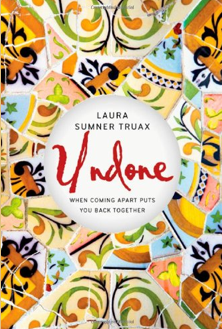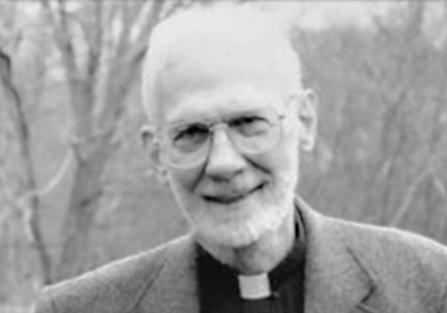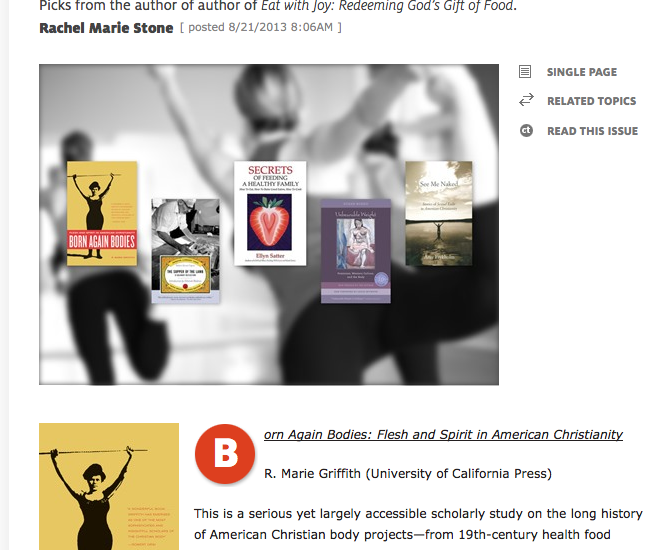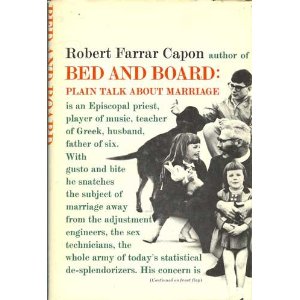 You know I can’t resist Robert Farrar Capon. His writing is so quirky (and so, by all reports, is/was he–can anyone confirm whether he’s still alive or not!?) that it defies comparison with any other; Andy Crouch noted in an email that Father Capon’s writing voice sounds like him and no one else.
You know I can’t resist Robert Farrar Capon. His writing is so quirky (and so, by all reports, is/was he–can anyone confirm whether he’s still alive or not!?) that it defies comparison with any other; Andy Crouch noted in an email that Father Capon’s writing voice sounds like him and no one else.
(Very true. And yet. While I often year “develop a unique voice” as writing advice, I’m not quite sure that this is something that can be aimed at. George Orwell’s Six Rules are a good place to start, especially rule #1: “never use a metaphor, simile, or other figure of speech which you are used to seeing in print.” Beyond scraping away crusty, dried-out turns of phrase, though, I suspect that a distinctive writing voice from having distinctive things to say than aiming at saying things in a distinctive way. Maybe. End of writing rant.)
Anyway. As with Babette’s Feast, which I wrote about yesterday, I feel reluctant to say much about the book, because a book by Father Capon is an experience in itself; to distill the ideas from the whole of the book is to distort them.
I’ll go out on a limb (sorry, Orwell) and say that this book is unlike any other on marriage I’ve ever read or heard of. It’s certainly the antithesis (antidote?) of a certain contemporary book on marriage that released yesterday. It’s deeply Christian and theological without being sectarian or Biblicist. As in much of Capon’s writing, he celebrates the potential of material particularities to call forth, to anticipate, to celebrate the transcendent–the City of God. The marriage “bed” and family “board” (table) are two of these particular, material places where we enact, however feebly, the glories of the Kingdom in the liturgies of the everyday:
“My bed and my board are the choice places of my healing and I go to them with a glad mind. God wills to build the city but while he makes it matter, he refuses to make it serious. The divine mirth lies behind all things and it is in his light that I begin to see the lightness of it all.”
Plus? The cover copy announces that the book
“snatches the subject of marriage away from the adjustment engineers, the sex technicians, and the whole army of statistical de-splendorizers.”
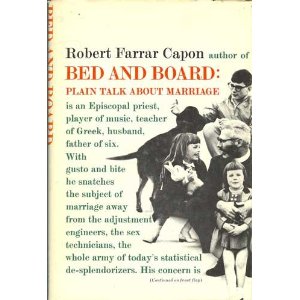 Statistical de-splendorizers, indeed! I’m stealing that turn of phrase.
Statistical de-splendorizers, indeed! I’m stealing that turn of phrase.
Find yourself a copy of this book, or really, any by Father Capon. Tomorrow, I’m going to talk about two other recent marriage books–The Meaning of Marriage and Real Marriage by Timothy & Kathy Keller and Mark & Grace Driscoll, respectively. On Friday, we’ll look at another contemporary book on marriage–Are You Waiting for The One?–that far surpasses its contemporaries.







